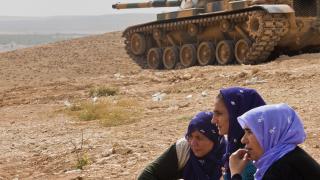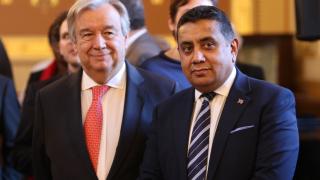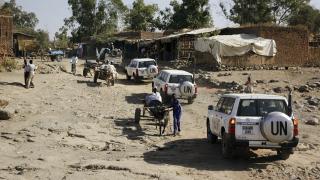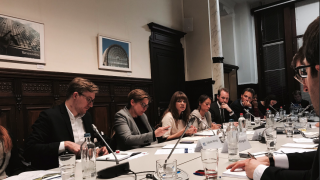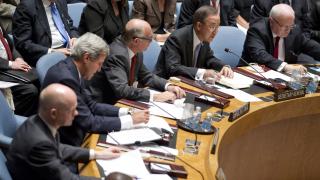
Welcoming the UN Security Council’s resolution on chemical weapons in Syria, UNA-UK urges the Council to take a similarly firm stance on the appalling humanitarian situation in the country.
Adopted unanimously on 27 September, Resolution 2118 outlines the process by which Syria’s chemical arsenal will be safeguarded and destroyed. It allows for the Council to consider measures under Chapter VII – which permits the use of force – in the event of proven non-compliance, but makes no reference to the International Criminal Court in its provisions on accountability for chemical weapons use. UNA-UK has been calling for the mass killings in Syria, whether through chemical or conventional weapons, to be referred to the Court.
In an interview with BBC Radio 5Live, UNA-UK Chairman Sir Jeremy Greenstock said the resolution was an important step towards ridding the Middle East of weapons of mass destruction. Syria has one of the largest chemical arsenals in the world.
However, he warned that recent developments should not be over-hyped as a triumph for diplomacy. Over 100,000 Syrians have been killed since violence erupted in 2011. More than two million have fled the country, of whom 97 per cent have found refuge in neighbouring states.
UNA-UK hopes that the recent diplomatic momentum will be used to press ahead with a ceasefire, increased aid and efforts to secure a political solution. Now that the chemical weapons resolution has been secured, we hope that the Security Council will throw its weight behind an equally robust resolution on Syria’s worsening humanitarian crisis, which is threatening to destabilise the region.
The resolution should address issues of humanitarian access and civilian protection – particularly for the displaced, refugees, minorities and aid workers – and could usefully make reference to non-coercive measures under the ‘responsibility to protect’.
It should also include the conditions for improving aid delivery set out by UN humanitarian chief Valerie Amos earlier this year:
- Lifting bureaucratic constraints on humanitarian agencies and workers
- Introducing empowered interlocutors so that agencies can engage with designated people on such constraints
- Granting free passage of medical supplies, and demilitarising medical facilities
- Prior notification of military offensives to civilians and aid convoys
- The designation of priority humanitarian routes, including across front lines
- The ability to conduct effective cross-border operations
- Humanitarian pauses in fighting in order to allow access
In addition, UNA-UK believes that there should be a reference to longer-term political and humanitarian processes.
The announcement that the long-awaited Geneva II peace talks are likely to take place in mid-November is a step forward. Last week, UNA-UK and its partners sent a petition with over 100,000 signatures calling for a concrete date to be set to the US and Russian missions in New York.
The Association believes it is crucial for these talks to move towards an international coordinating structure on humanitarian issues that involves all parties in Syria and in the region with a legitimate interest in a political outcome.
Image: Security Council Unanimously Adopts Resolution on Syria Chemical Weapons (UN Photo)



